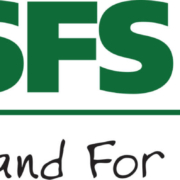US Small Business Optimism slips in April amid rising volatility: NFIB
The seasonally adjusted data showed that 34 per cent of business owners had unfilled job openings in April, a 6-point decline from March and the lowest since January 2021.
The net per cent of owners expecting better business conditions fell 6 points from March to a net 15 per cent (seasonally adjusted), the lowest since last October. This component, along with unfilled job openings, contributed most to the Optimism Index’s decline, NFIB said in a press release.
In April, the NFIB Small Business Optimism Index dropped to 95.8 in US, below the 51-year average.
Key concerns included labour quality and weak sales expectations.
Job openings and capital investment plans declined, while inflation concerns eased.
Despite ongoing uncertainty, more owners rated their business health as good or excellent.
Profit trend improved slightly, signalling cautious optimism.
The net per cent of owners expecting higher real sales volumes fell 4 points from March to a net negative 1 per cent (seasonally adjusted). This is the fourth consecutive month real sales expectations declined.
A net negative 4 per cent (seasonally adjusted) of owners plan inventory investment in the coming months, down 3 points from March and the lowest reading in 11 months. Eighteen per cent (seasonally adjusted) plan capital outlays in the next 6 months, down 3 points from March.
Nineteen per cent of small business owners identified labour quality as the single most important issue in April, unchanged from March, making it the top concern for the third month in a row. Meanwhile, 14 per cent cited inflation as their main challenge, down 2 points from March and the lowest level since September 2021, placing it third among key concerns.
Thirteen per cent of small business owners rated the overall health of their business as excellent, marking a 2-point rise from the previous month, while 56 per cent described it as good, up 3 points. The share of owners reporting business health as fair declined by 4 points to 27 per cent, and those rating it as poor remained unchanged at 4 per cent.
A seasonally adjusted 34 per cent of small business owners reported having job openings they could not fill in April, a 6-point decline from March. Among the 56 per cent of owners who were hiring or attempting to hire, 85 per cent said they received few or no qualified applicants. Looking ahead, a seasonally adjusted net 13 per cent of owners plan to create new jobs within the next three months, up one point from March, as per NFIB monthly jobs report.
Labour costs reported as the single most important problem for business owners fell 3 points in April to 8 per cent. Seasonally adjusted, a net 33 per cent reported raising compensation, down 5 points from March. A seasonally adjusted net 17 per cent plan to raise compensation in the next three months, down 2 points from March.
The frequency of reports of positive profit trends was a net negative 21 per cent (seasonally adjusted), 7 points better than in March and the highest reading since March 2023. Among owners reporting lower profits, 38 per cent blamed weaker sales, 14 per cent cited usual seasonal change, 11 per cent blamed the rise in the cost of materials, 9 per cent cited the price change of their product or service, and 8 per cent cited labour costs.
“Uncertainty continues to be a major impediment for small business owners in operating their business in April, affecting everything from hiring plans to investment decisions,” said Bill Dunkelberg, chief economist at NFIB. “While owners are still trying to fill a high number of current job openings, their outlook on business conditions is less supportive of future business investments.”
Fibre2Fashion News Desk (SG)












Leave a Reply
Want to join the discussion?Feel free to contribute!